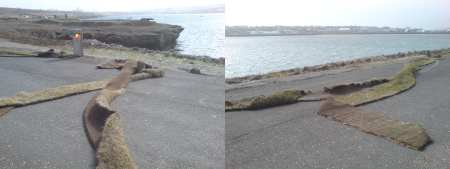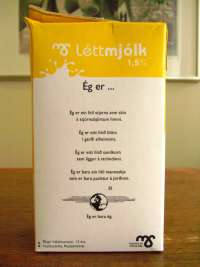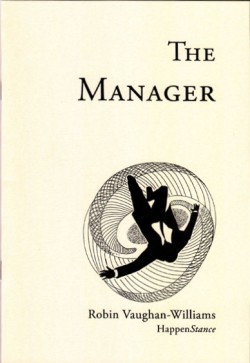At the Off the Shelf Festival in Sheffield this year, Signposts organised a couple of poetry and music events, featuring a mixture of newly commissioned work and restagings of work from recent years.
This is a review of the first of these nights, 20 October 2009, which featured ‘Bat Detector’ by Elizabeth Barrett (words) and Robin Ireland (viola), and ‘Somewhere to Get to’ by Shelley Roche-Jacques (words) and The Only Michael (electronic sounds).
As will become obvious when you read the article below, I’m more interested in exploring how the poetry and music work together in performance here than in either the poetry or music on their own.
*
I first heard ‘Bat Detector’ on CD in 2007, when I played it on my radio show, but this was the first time I had heard it live. Then, as now, I felt there was something terribly restrained and even forced about the arrangement: the way that the viola and voice do not overlap at all, but are purely sequential. While part of me doesn’t like this very much, in the end I find it a powerful and moving piece, and full of tension, which is in part generated by the forced nature of its restraint.
The viola and the voice in ‘Bat Detector’ are not so much brought together, as forced to exist side-by-side, each enduring the other’s company, one waiting politely for the other to finish before taking its turn, then yielding again to the other. The form is stiff and Victorian, like a duet where the partners do not dance together, but instead take it in turns to dance, each waiting and watching while the other plays their part.
The text of ‘Bat Detector’ deals with blockages in communication. There is an autistic child, a difficult relationship, and the image of the bat detector itself, a box that allows us to listen in on the calls of other creatures we cannot understand, to hear sounds that we would normally be oblivious to. There is a sense that the worlds of other creatures, not just bats but also other human beings, are strange and obscure to us, and we can only listen in with wonder and curiousity. The bat detector, the medium of communication, is an instrument of delicacy, and there is something miraculous about it when it works.
The voice and the viola are rather like this. Two individuals, two different species, two different languages. The viola playing is precocious, irritating even in its desire to display its technical inventiveness and virtuosity. It scuffles about, seems to pick up on a rhythm, but then runs with it only intermittently, as if poor reception were causing it to cut out. You don’t feel the rhythm, but you feel like there is something else that does. And all this, somehow, seems to bear on the voice and its poetic content: there is the fluttering and screech of bats, the sense of a multitude of creatures, a fractured cloud of sounds that cannot be grasped individually, but which nevertheless impresses its mass upon you, and the rhythms of speech that somehow find their way into the music.
So, in holding apart words and music, as if to say, look, these are so different they could not possibly get on together, the poet and the violist actually allow the affinities between the two protagonists to emerge, and it is as if they would slam back into each other, were they not held apart with such force.
*
Perhaps one of the reasons for separating text and music in ‘Bat Detector’ was that each behaves as a soloist, demanding the full attention of the audience. They are two soloists without an orchestra. In ‘Somewhere to Get to’ this relationship is less clear. To begin with the music was extremely quiet, as if afraid of interfering with the voice and unsure of its own place in the performance. But then the volume surged, as if suddenly untamed, and threatened to drown out the ensuing poetry. It stepped back again, allowing the voice to come to the fore; but, having demonstrated its power, however quiet and submissive it got, from now on there was always the threat that it might surge again and overwhelm the voice. The music kept changing throughout, without any apparent continuity in rhythm or melody, and it was this unpredictability that I thought characterised it most.
In ‘Somewhere to Get to’ it was ultimately the words that held the piece together, the train of thought that holds its own against the concatentation of sounds swirling around it. The music, a mixture of samples, beats, and looped guitar, functioned more as a constantly moving backdrop, a series of imaginings that brought out the less stable content underlying the consistency of poetic style and delivery. It was rather as if we were on a journey through an urban environment, moving from space to space, where the various rhythms of work, conversation, machinery, and so on, keep changing. When the volume was low it was as if we were listening behind a closed door; then the door would open and we’d get flung forwards into the roar of traffic or rattle of a drill, so you could barely catch the words or hear yourself think.


